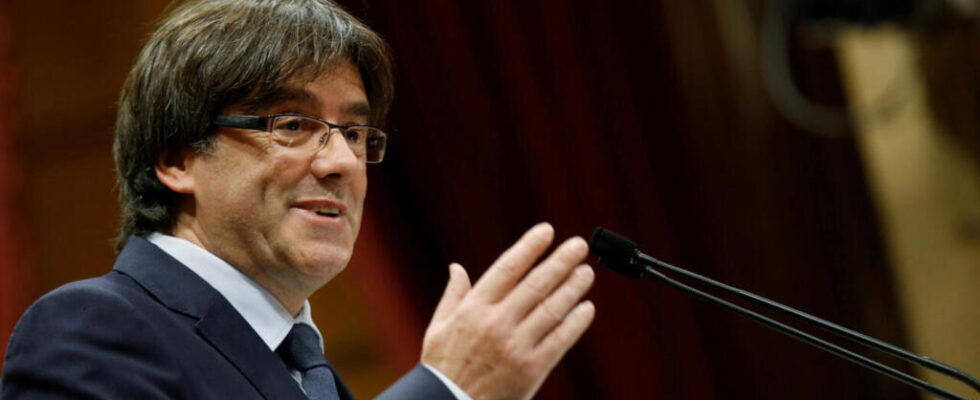The pro-independence activist, exiled in the south of France to avoid arrest on suspicion of embezzlement, is in Barcelona this Thursday for the inauguration of the regional president, despite the risks that this entails. This is why The Country judge ” incomprehensible ” that the former regional president “ risks his arrest ” Who, “ barring elusive maneuvers, will occur in all possible scenarios ” if he sets foot in Spain.
Unless it’s a way to continue living in the news? That’s what he wants to believe The Worldaccording to which a Carles Puigdemont “ defeated at the polls “, ” forgotten by a good part of Catalan society ” And ” trapped in his character “, just has to ” accept his loneliness and return to be arrested “. Objective: to become a sort of martyr of independence, to be one of these present images” in the defeated memory of nationalism “And on the other side of the Pyrenees, The Cross abounds: ” failing to be elected president of Catalonia “, Carles Puigdemont ” looking for an epic, theatrical image “.
Unless this return is an opportunity for reconciliation…
Certainly, continues The Crossthis return to the country is ” a staging “made by a politician” accustomed to unpredictable scenarios ” But for The Countrythis could have a benefit: that of offering ” a historic opportunity “, and the opportunity ” to take a new step in the resolution of the Catalan conflict ” which has been going on for years.
For the first time since 2012, the independentists do not have a majority in the Catalan parliament, and this could be the right moment. to advance the integration of Catalonia into the EUspanish state “One thing is certain: this return provokes a reaction; it creates ” of waiting in its ranks [ceux de Puigdemont], weariness among rivals… and absolute indifference among the majority of the population “.
The British population, however, is far from indifferent after the racist riots at the beginning of the week.
Thousands of people demonstrated yesterday against these violent riots, and, according to the Guardian” formed a human shield to protect asylum centres » after alerts on « more than a hundred far-right rallies “The movement has spread across the country, from Brighton to Bristol and from London to Liverpool… So much so that, reports the Timesthe protesters ” assure that they scared ” to the far-right demonstrators. The latter, who were supposed to come in large numbers, were ultimately ” present only in small numbers at the protest sites “, he says The world in Germany. In fact, judge the Guardianthere was finally “ few signs of the troubles observed over the past week ” like a bad dream.
An unanswered question: now what?
The world says it well: the Prime Minister Keir Starmer ” can’t breathe a sigh of relief “It is also necessary to note that ” the biggest challenge “, that of ” to bring together a society whose deep divisions ” have come to light in recent days. It is a thing” to be severe with the rioters “, approves the Guardianbut it is another one “ to prevent further disturbances » in « limiting popular anxieties around immigration “, revealed in all their brutality at the beginning of the week. As for the Timeshe recalls that “ Riots are, invariably, a challenge for the EU.tat ” since they pose the question of ” its ability to maintain individual freedoms, public peace and respect for the law ” everything at once.
However, the New York Times prefers to see hope in this episode: the reaction “ resolutely negative “From public opinion to riots” suggest that using the unrest to push anti-immigration measures could backfire on Britain’s far right “.
Besides, Release reports that “ 67% of Britons worried about rise of far right ” Except that another poll, the same day, indicates that “ Immigration is the main challenge facing the country ” for more than 50% of respondents… ” at a level not seen for almost 10 years “Keir Starmer and his government still have work to do.
